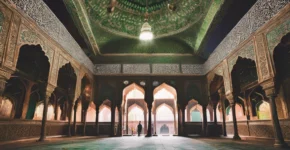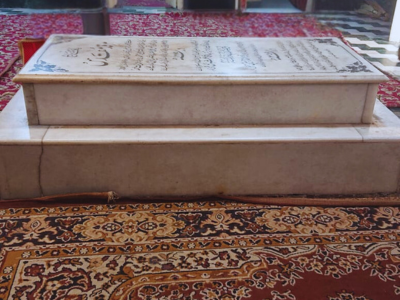Shaheed Rabe, originally known as Mirza Muhammad, embarked on his educational journey at a time when knowledge was highly revered, particularly within the Islamic tradition. Born into a family that valued scholarship, he was encouraged from an early age to pursue learning. His father, Mirza Inayat Ahmed, instilled in him the importance of education, ensuring that his son grew up with a deep respect for knowledge and religious teachings.
Early Education
From a young age, Rabe displayed a sharp intellect and a passion for learning. His early education focused on the Quran and Islamic jurisprudence (Fiqh), as well as the Hadith (sayings of the Prophet Muhammad). His father, a scholar himself, made sure Rabe had access to some of the finest scholars of the time, who guided him in mastering the principles of Islamic law, theology, and ethics. This solid foundation in religious studies would later shape Rabe’s own scholarly contributions.
Advanced Studies and Expertise
As he grew older, Rabe sought deeper understanding in various branches of Islamic knowledge. He traveled to different Islamic learning centers, where he studied under renowned scholars and furthered his expertise in Quranic exegesis (Tafsir), logic, and philosophy. His dedication to learning was unwavering, and he was known to spend long hours in study, contemplating the intricacies of Islamic law and theology. Rabe’s intellectual curiosity also extended beyond religious studies. He engaged in the study of language, history, and science, which added breadth to his scholarship. This holistic approach to learning allowed him to emerge as a well-rounded scholar, capable of addressing complex theological and ethical questions in a rapidly changing world.
Contributions as a Teacher
Once he had completed his own studies, Rabe began to teach, sharing his vast knowledge with others. His teaching style was known for being methodical and engaging, allowing his students to grasp even the most difficult concepts with ease. He often used real-world examples to explain religious principles, making them relevant to everyday life. His ability to communicate complex ideas in simple terms made him a highly respected teacher, attracting students from far and wide. Among his pupils were future scholars and leaders, many of whom credited Rabe with shaping their understanding of Islam and guiding them toward a path of righteousness. His commitment to nurturing the next generation of scholars ensured that his intellectual legacy would live on long after his death.
Establishing Centers of Learning
Recognizing the need for formalized educational institutions, Rabe played a crucial role in establishing centers of learning. These institutions were designed to provide students with a comprehensive education in Islamic studies, as well as training in the moral and ethical values that are central to the faith. Rabe believed that education should not only be about acquiring knowledge but also about cultivating character and a sense of social responsibility.These centers became hubs of intellectual activity, where scholars gathered to debate ideas and students engaged in rigorous study. Rabe’s vision was to create an environment where learning could flourish, and where scholars could pass on their knowledge to future generations.
Educational Philosophy
Raabe’s educational philosophy was rooted in the belief that knowledge is a form of worship. He often quoted the Quranic verse: “Say, ‘Are those who know equal to those who do not know?’” (Quran 39:9), highlighting the importance of seeking knowledge as a religious duty. He believed that true knowledge should lead to humility and a deeper connection with God. Moreover, Rabe emphasized the importance of critical thinking and independent reasoning. He encouraged his students to question, analyze, and arrive at their conclusions through study and reflection. He saw education as a tool for empowering individuals to make informed decisions and uphold justice in society.
Legacy in Education
Shaheed Rabe’s contributions to education left an indelible mark on the Islamic world. His teachings continue to be studied and revered by scholars, and the institutions he helped establish have nurtured countless students over the centuries. His approach to education—one that combines knowledge with ethics—has become a model for Islamic scholarship. Through his tireless efforts, Shaheed Rabe not only enriched the intellectual landscape of his time but also created a lasting legacy that continues to inspire and guide future generations in their pursuit of knowledge and justice.




